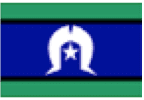Ellie* is a single mum of three girls living in Melbourne’s west. She is a survivor of an abusive relationship with the father of two of her daughters.
In 2009, Ellie received a $30,000 overpayment debt from Centrelink. Centrelink had made a decision that she had received the incorrect rate of Parenting Payment for a number of years leading up to 2009, as she had been paid the single rate of payment.
Centrelink alleged that she was only eligible for the lower couple rate of Parenting Payment. Ellie tried to challenge this decision on her own through the Authorised Review Officer (ARO) review process, and later to the Administrative Appeals Tribunal (AAT).
This was an incredibly difficult task for her as she suffers from multiple severe mental health conditions, which were being exassabated by having to recount the instances of violence perpetrated on her in the years prior to the debt being raised.
Ellie was unrepresented at the AAT in 2014 and was unaware that legal services might have been available to her at the time. She did not know she had a further right of review, to the General Division of the AAT, and started the process of slowly paying off the large debt, which left her and her daughters in a position of severe financial hardship.
In 2020 Ellie was referred by another community legal centre to SSRV.
SSRV assisted Ellie in arguing that she should be given an extension of time to have her matter reviewed by the General Division of the AAT, with the benefit of having legal representation, given the compelling circumstances in her case.
Ellie, with the assistance of a legal representative from SSRV, was successful in obtaining a six-year extension of time from the AAT.
SSRV then represented Ellie in a review application at the General Division and successfully negotiated a settlement agreement to have the full $30,000 debt waived and all previously recovered amounts were repaid to Ellie.
Ellie told her SSRV lawyer that she has felt a huge weight lifted, having someone help her to navigate this complex appeals process and that she could not have done it without the “caring, compassionate and dedicated support of the SSRV staff and students” she worked with since coming to SSRV in 2020.
A common story
Ellie’s story illustrates, firstly, how difficult it can be to navigate the tribunal processes and secondly, some of the challenges that victim survivors of family violence face with Centrelink.
Currently, the steps for appeal in a Centrelink matter are:
1 – Authorised Review Officer – the internal appeal in Centrelink
2 – Administrative Appeals Tribunal First Tier, called the Social Services and Child Support Division
3 – Administrative Appeals Tribunal Second Tier, called the General Division.
It’s important to know that there are short time limits to appeal. Although the Tribunal does have the discretion to extend the time, do seek early advice because delay can affect the exercise of the discretion and any backdated payments.
As the overwhelming majority of people self-represent in the AAT, if they miss the deadline to apply for an appeal, many do not know how to navigate the process of seeking an extension.
If the extension of time is opposed, as Ellie’s was, they then need to attend a hearing to argue that the extension of time should be granted, before the General Division will consider the substantive issues. SSRV was able to assist Ellie with this process and we recommend clients call us if they are in this situation.
In Ellie’s instance, SSRV was able to negotiate a settlement on the basis that the Department could use its discretion to decide that Ellie was not a member of a couple, even if there were some characteristics of a relationship present.
The consequences of this were that Ellie could have some of the money that she had already paid off the debt, returned to her.
To determine whether someone is a member of a couple, Centrelink will look at your:
· Financial arrangements
· Accommodation and household set up
· Social relationship
· Sexual relationship
· Commitment to each other
If you’d like to read more about this, see this factsheet about relationship status and Centrelink.
If you need more assistance, please get in touch.
Legal Assistance Line: 0419 793 652 or 03 9481 0355
Worker Help Line (for support workers): 0429 450 346 or 03 9481 0655
*Names and some identifying details have been changed.




